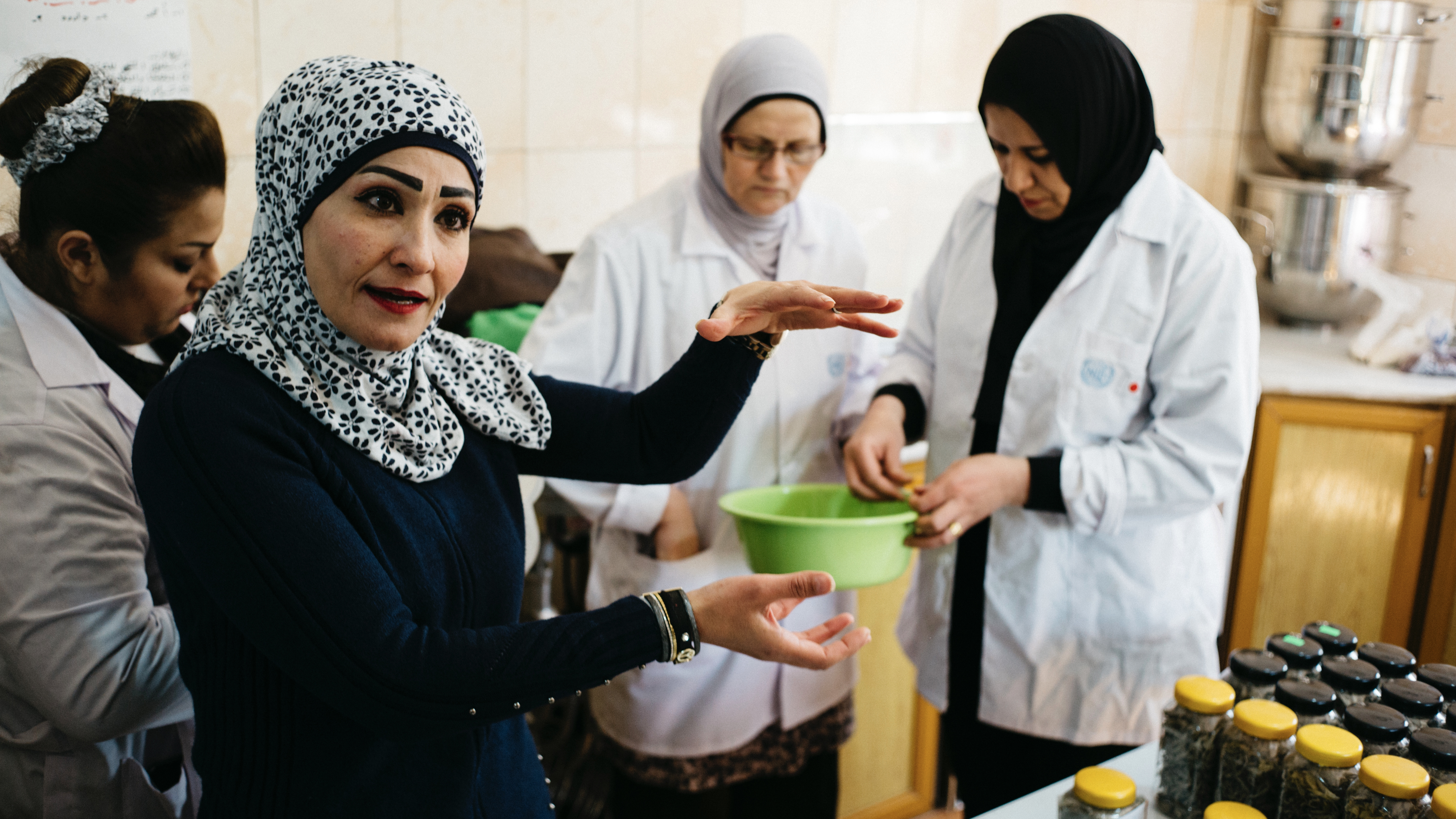

‘We are not forgotten’ – Syrians and Jordanians working side by side
01 June 2018 Daniel CHANG

Jordan is one of the main destinations for more than 4.9 million Syrians fleeing the civil war. The Kingdom currently hosts over 600,000 Syrian refugees, more than 10% of its pre-crisis population.
Over the last five years, competition for employment opportunities has been particularly fierce in the agricultural sector. Without work permits Syrian refugees enter the informal job sector earning far less than the national minimum wage.
"This massive influx has heavily impacted local economies, as well as people’s livelihoods, especially in places where resources are scarce,” says Noriko Takahashi, UNIDO’s Project Manager.
Host communities are facing inflated prices for basic commodities, goods and services.
“It is necessary to work not only with the families that arrive (from Syria) but also with the communities that receive them,” adds Takahashi.
The UNIDO project, funded by the government of Japan and implemented in 10 different communities, tackles food insecurity by leveraging the agricultural potential of the area known as the food basket of Jordan.
Azraq Women’s cooperative
Samya Abass, 41, has witnessed the crisis first hand. She was born and raised in Azraq, a small town in central-eastern Jordan, now home to almost 20,000 Syrian refugees.

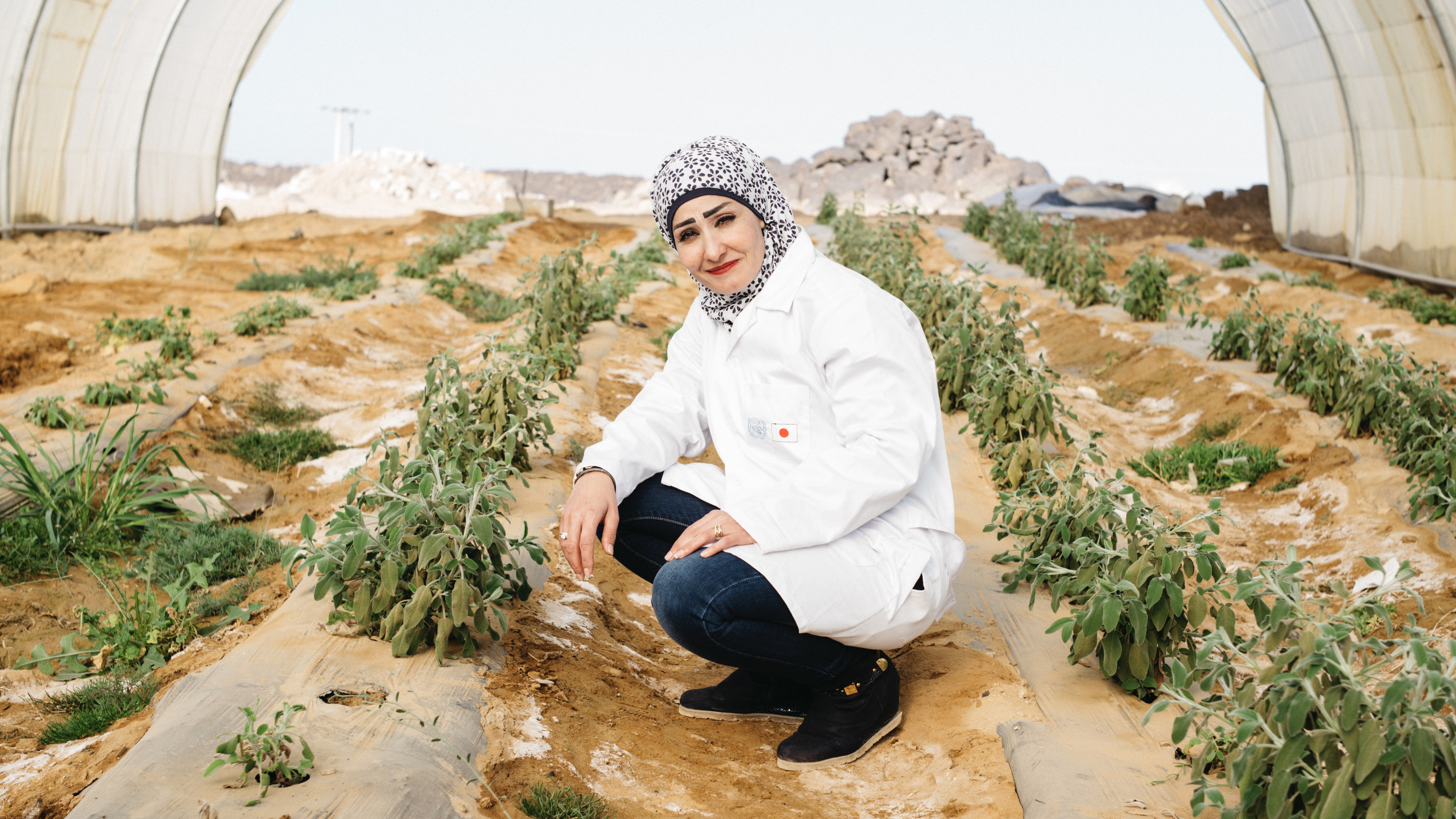
Abass is the head of the Azraq Women’s cooperative, a small organization that works closely with UNIDO to improve food security and create employment in the area.
Focusing on medicinal herbs and also on growing vegetables, the cooperative received training on how to improve harvesting methods, building capacity in agricultural processing and assisting farmers to market their products.
“Now we grow sage, peas, beans, onions and garlic. All with medicinal capabilities,” says Abass. “We also produce pomegranate essence; it helps with weakness in the blood and can be mixed with water as a form of protection against colds”.
According to her, “The goal is to take the benefits of the land, and to create natural products with no chemicals, with the highest quality for consumers.”
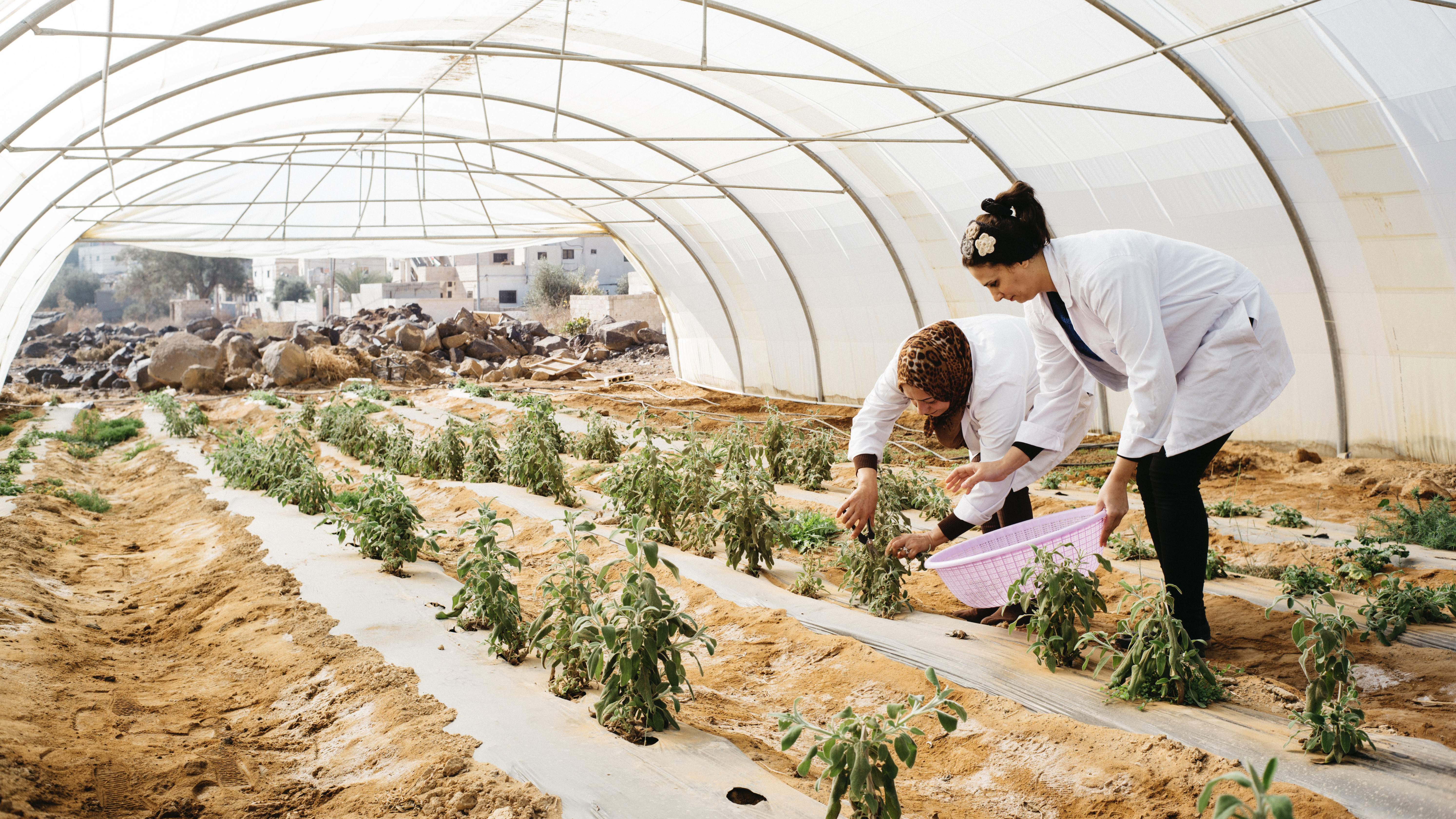
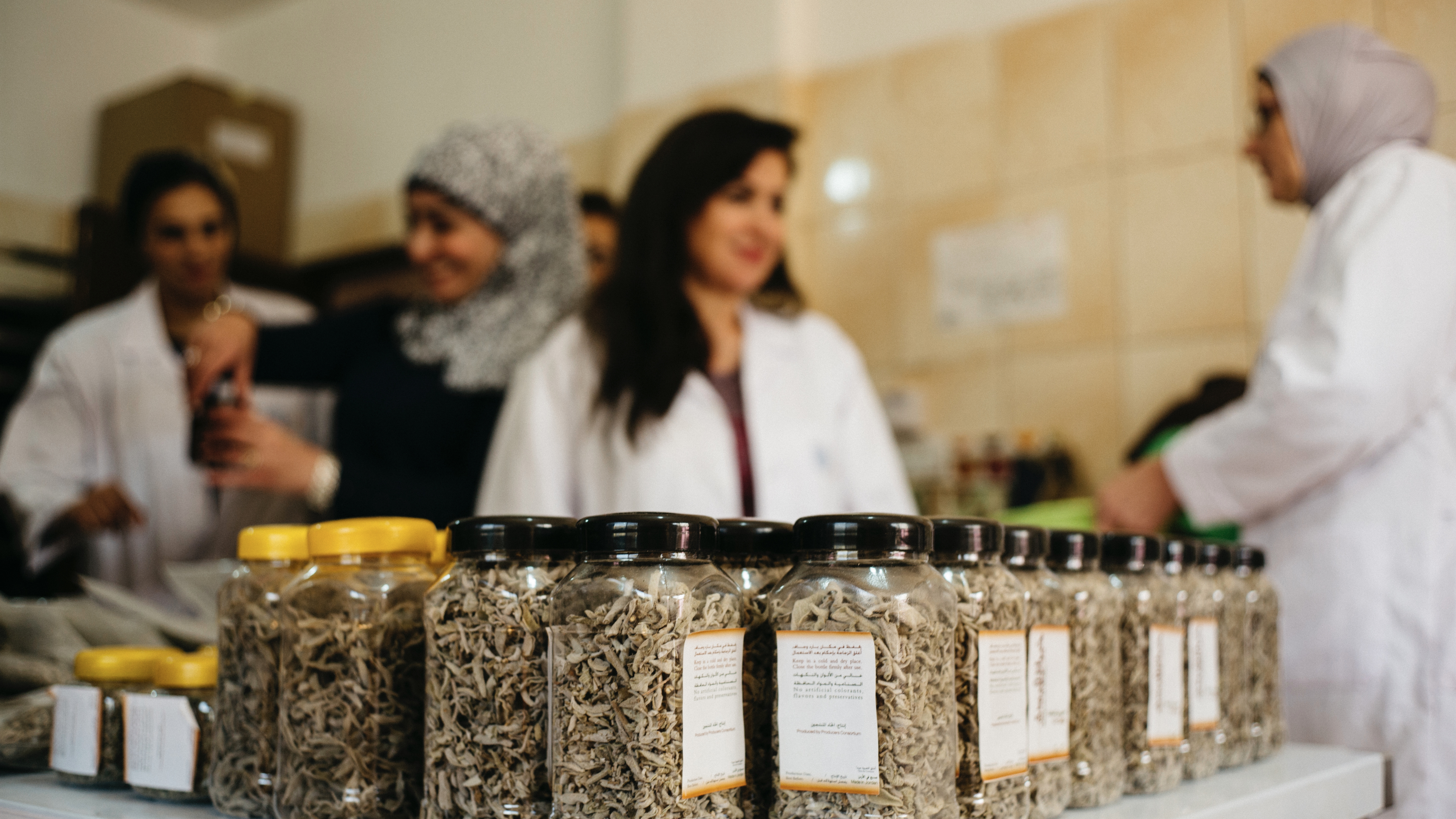
“The first day the Syrians arrived at the training programme and the next day we were like family”
“This is a pioneering project, it creates job opportunities to help locals and Syrians,” affirms Abass.
She is experienced in implementing agricultural initiatives for the local community. However, for the first time, the needs of both host and refugee communities were considered by integrating Syrians into the trainings alongside Jordanian trainees.
“In the beginning, with previous training before working with UNIDO, I would always smuggle in two or three Syrians. Now that they were included from the beginning, I was really happy,” she recalls.
According to Abbas, working together has strengthened the bond within the community. “The first day the Syrians arrived at the training programme and, the next day, we were like family. Whenever we have breaks, we eat together and drink coffee and tea. Everyone brings something from their own house and they all sit together and eat.”
Women’s empowerment
Since 2016, over 500 people have been trained under this project - 60% of them were women. Salwa Sueliman is one of them.
She is 45 years old, from Syria, and arrived in Jordan as a refugee in 2013. Sueliman and her husband, Mohammad, have nine children, living in a tent in Badia, eastern Jordan.
Sueliman was a trainee under the UNIDO project, and she has seen a notable increase in female involvement within the community encouraging them to take on active roles during trainings.
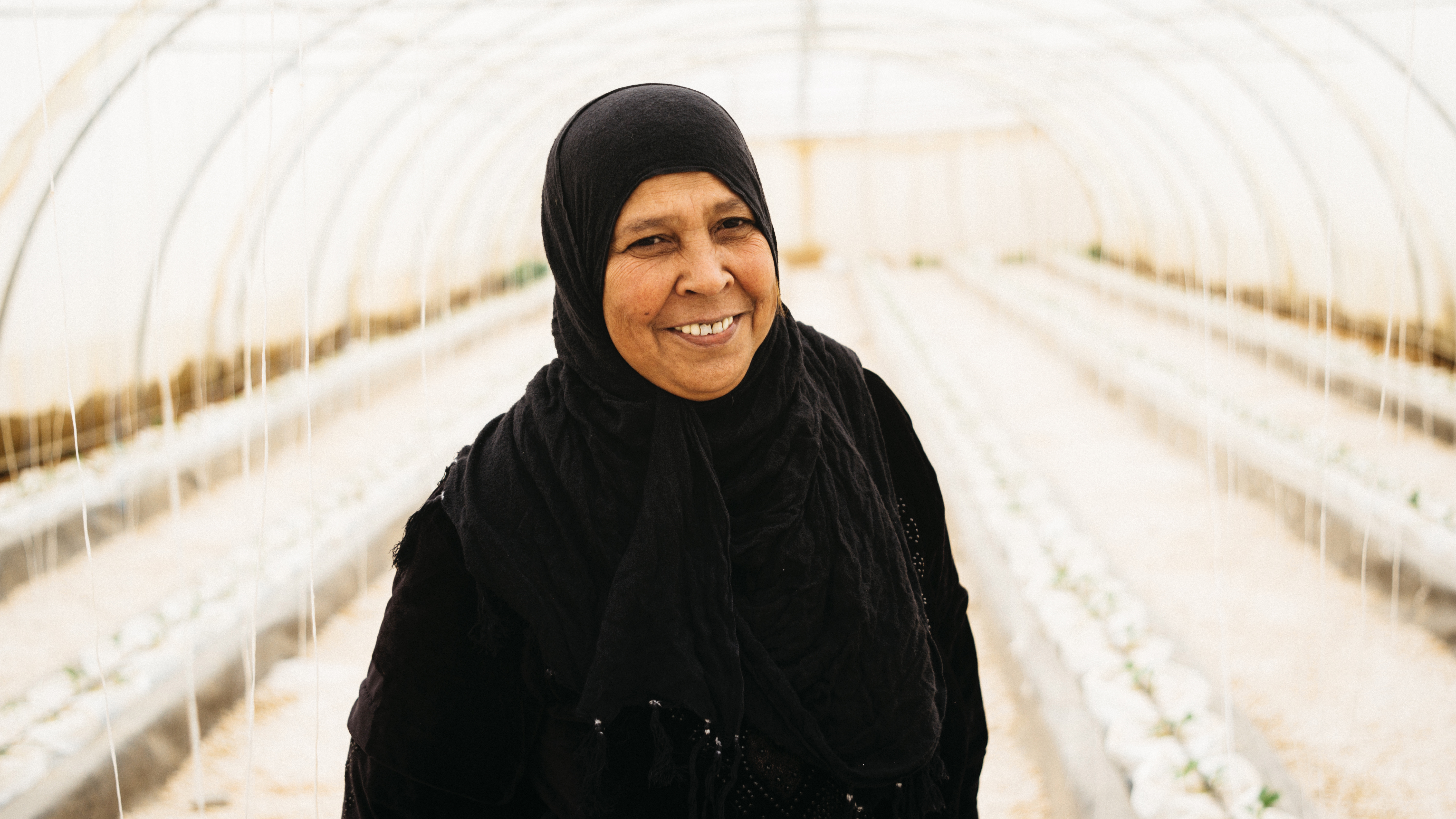
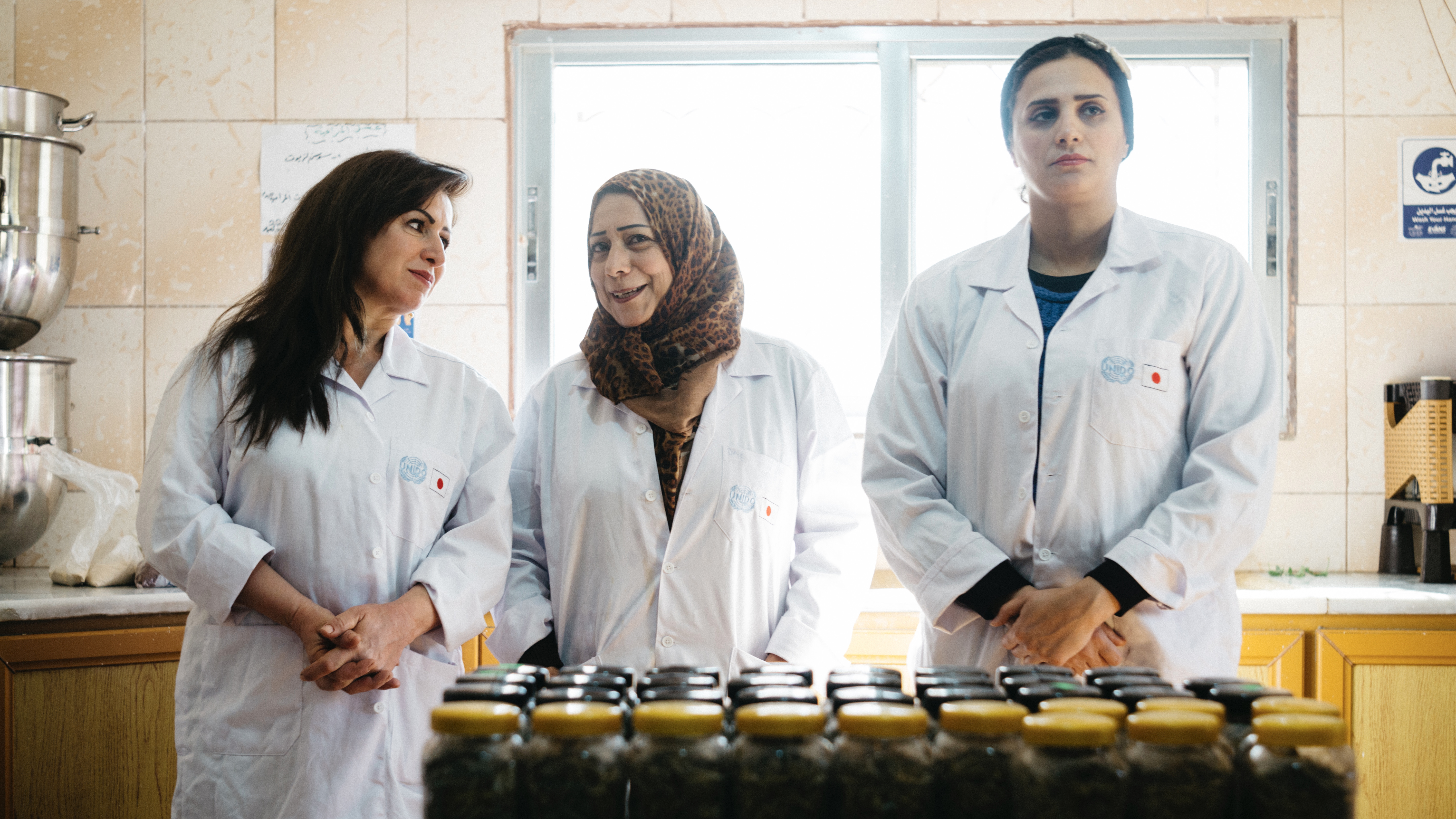
“The project helped women to get out of their isolation and participate with men through different lectures and meetings,” she says. “It helped to break the ice between the female and male trainees. Now they are working side by side with the men.”
Sueliman and Abass have faced the crisis from different perspectives, but both share the same feeling:
“It makes you forget about the troubles of life and the misery you faced,” tells Sueliman.
“It (the project) provides something more than financial support. It provides emotional support. I feel we are not forgotten,” affirms Abbas.